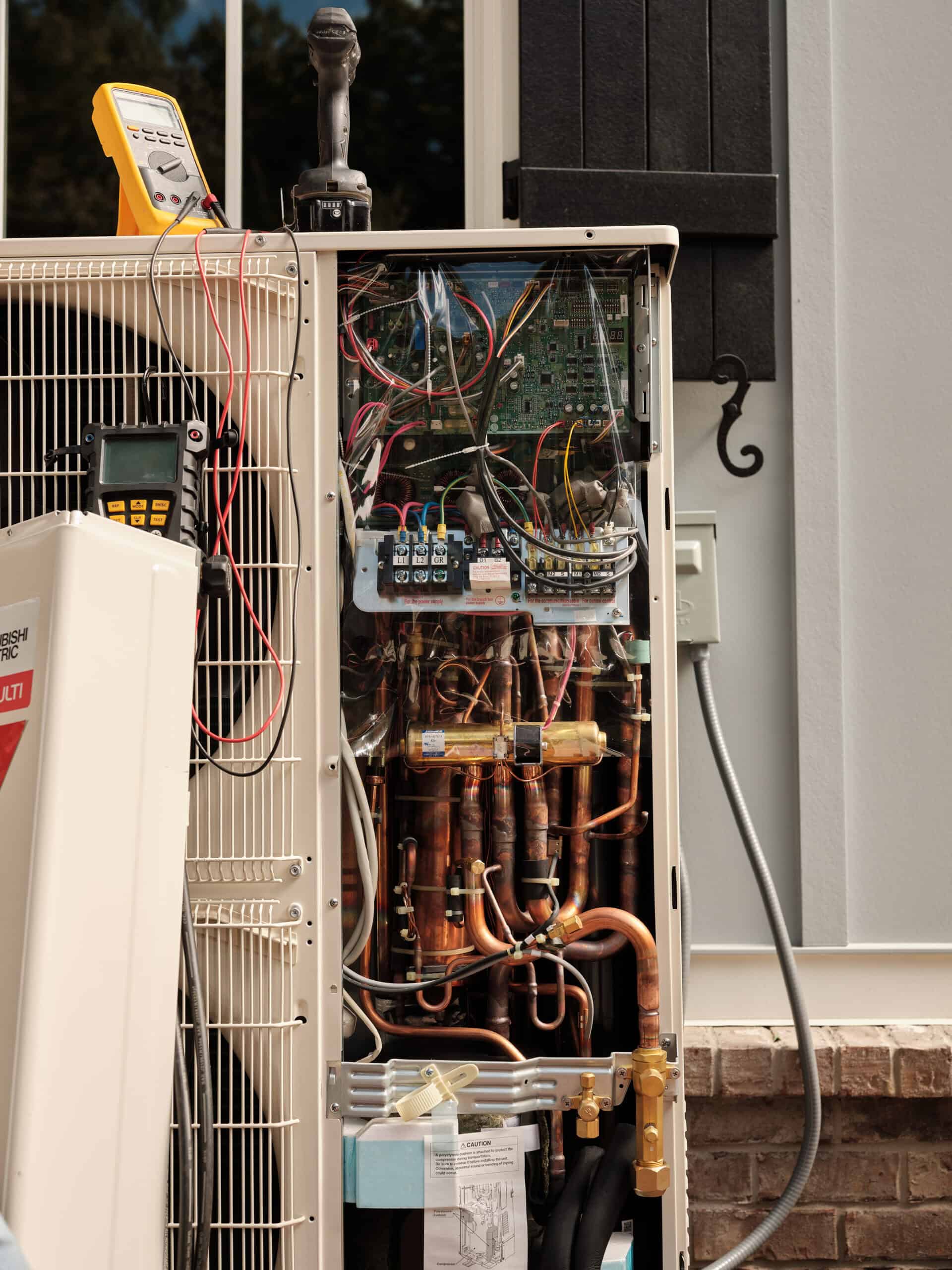
Call us at (303) 250-1000 or schedule online. We'll be in touch via your preferred contact method to find a convenient time that works for you.
We'll text you when we head your way in the 2-hour appointment window.
We'll provide pricing & options on a cooling solution that fits your needs, budget and home.
We'll install the heat pump end to end and take care of all details. You're in good hands.
It’s an air conditioning unit that can also transfer heat.
A ducted heat pump system usually replaces your furnace and AC.
It’s a heat pump that uses a centralized ductwork system to condition the air. A heat pump provides both heating and cooling in one unit.
An air source ducted heat pump is a type of heat pump system that uses an air handler or gas furnace to distribute conditioned air through the home’s ductwork. It’s similar to a traditional forced-air HVAC system but with the added efficiency of a heat pump.
If you have ductwork (usually paired with a furnace and central air conditioner), the heat pump for you will be likely the “air source” aka ducted heat pump. If you have no ductwork, ductless minisplits are likely your path.
If you’re interested in mini-split or ductless heat pump installation, click here.
Heat pumps have a higher upfront cost compared to traditional HVAC systems. However, CO residents can take advantage of rebates and incentives like Denver CARE, Xcel Rebates, and Federal & State tax credits to offset the initial investment. Plus, heat pumps are energy-efficient, leading to significant savings on energy bills over time.
Air source heat pumps provide energy savings, operate more quietly, and deliver more even comfort throughout the home.
As of January 2025, most of our customers net investment to replace their existing furnace and air conditioning with a cold climate heat pump system is around $10,200 – $14,500 Average gross price before incentives & rebates is ~$21,500 with an average upfront rebate amount of ~$9,800.
Upgrading to a heat pump isn’t just about efficiency—it’s also more affordable than ever thanks to rebates and incentives that significantly reduce upfront costs.
At UniColorado, we apply these rebates as an instant discount, meaning you get a high-efficiency heat pump for the same price as a standard system, with no waiting for reimbursements.
Heat pumps are a great upgrade for any home because they work with most existing HVAC infrastucture. Whether you’re replacing an old heat pump, furnace, or baseboard heaters, installation is straightforward and doesn’t require major changes.
For homes without ductwork, ductless heat pumps make it easy to add efficient heating and cooling without a big renovation. You get better comfort and lower energy bills without the hassle.
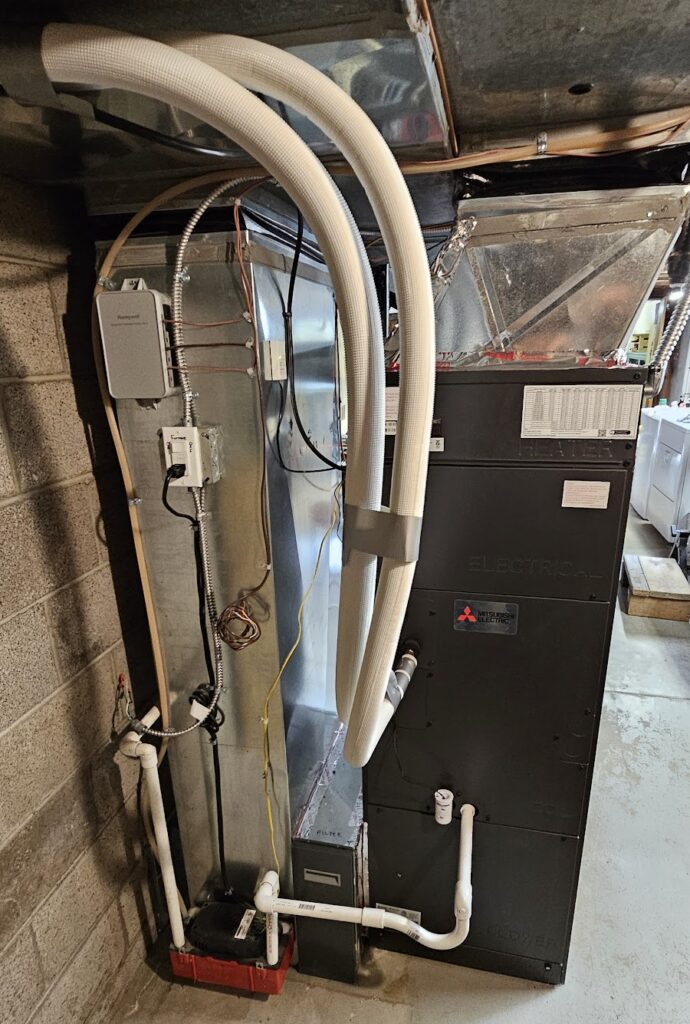
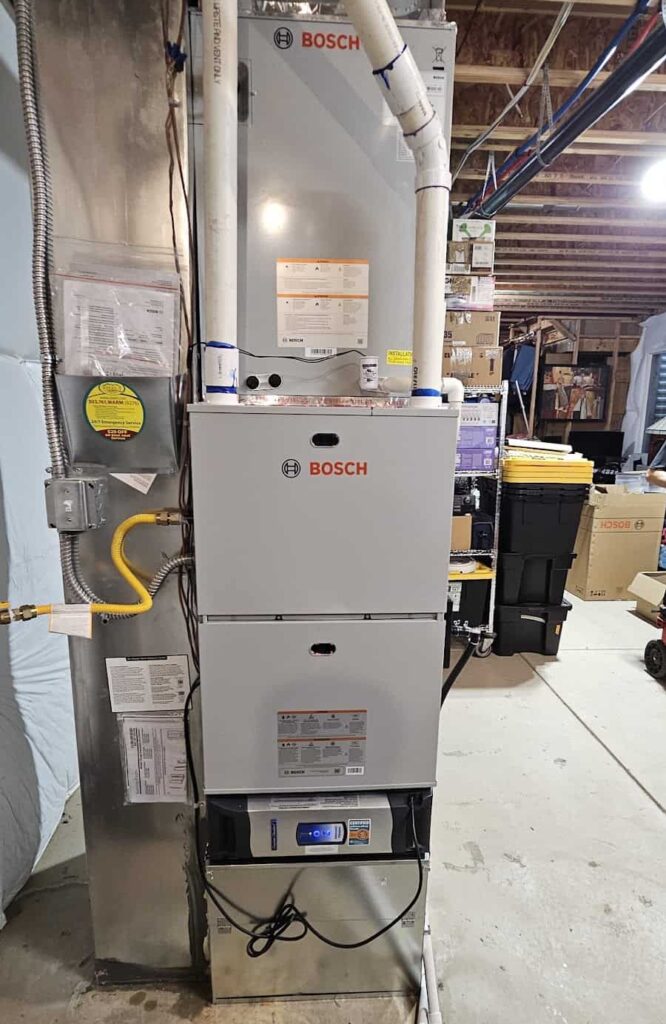
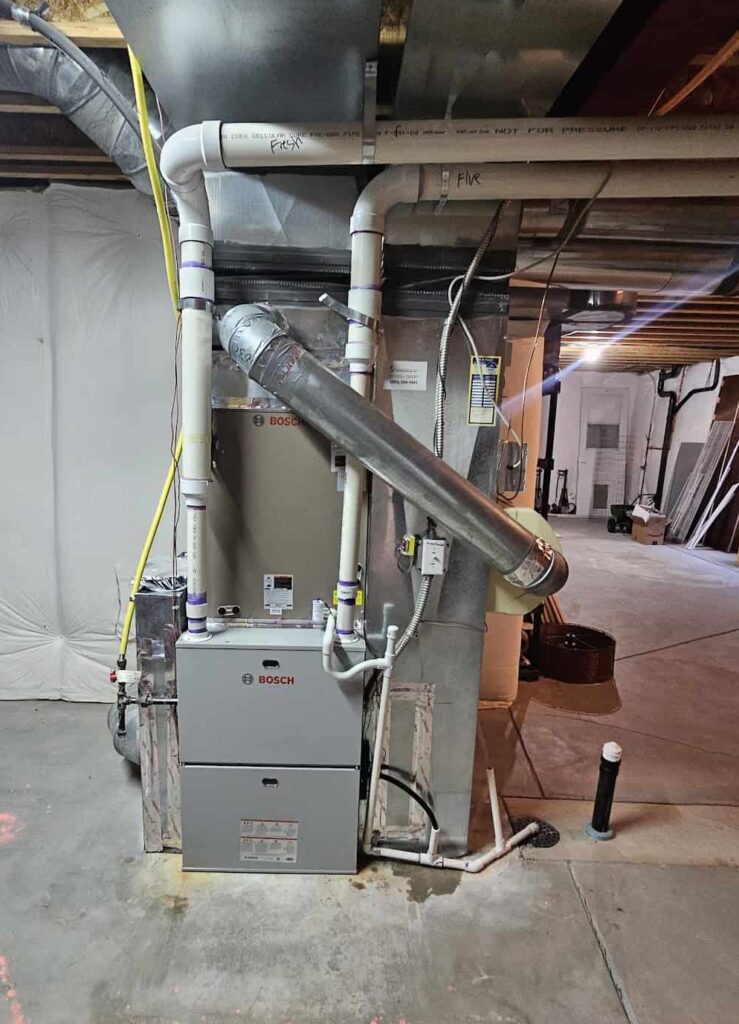
With current Colorado heat pump rebates making heat pump install costs comparable to a traditional furnace and AC, plus a lower carbon footprint, more even comfort, and quieter operation – why wouldn’t you make the switch?
Modern heat pumps keep your home perfectly warm in winter and cool in summer, working efficiently even in temperatures as low as -13°F (-24°C). No fossil fuels needed, just reliable comfort year-round.
Heat pumps use less energy than gas furnaces or electric heaters, lowering heating and cooling costs by an average of 15%, with potential savings up to 50%.
Savings vary by local energy rates & home efficiency, but with rising fuel costs, heat pumps remain one of the most efficient and cost-effective heating solutions.
The average cost to install a heat pump in Denver metro ranges from $7,800 to $12,400 after rebates and tax credits. The net investment for most of our customers hovered around $11,000 in Q4 2024 for the top variable-speed heat pumps, fully installed.
The cost of a heat pump installation is affected by:
– Your existing HVAC system type (furnace, boiler, or no central system)
– Eligbility for rebates & incentives
– Home size and layout which determines capacity
– Mechanical room location
– Current electrical situation
– Efficiency rating (higher SEER/HSPF ratings cost more)
– System features (variable-speed, dual fuel capability, smart controls)
– Electrical upgrades if needed
– Brand and warranty options
Rebates Are Bigger Than Ever! Xcel customers save big – average $8,200 with UniColorado. Plus get additional savings from: State of Colorado rebates, Federal tax credits & utility incentives.
Total savings can reach up to $18,250. These are the highest rebates we’ve ever seen – don’t wait to take advantage of them.
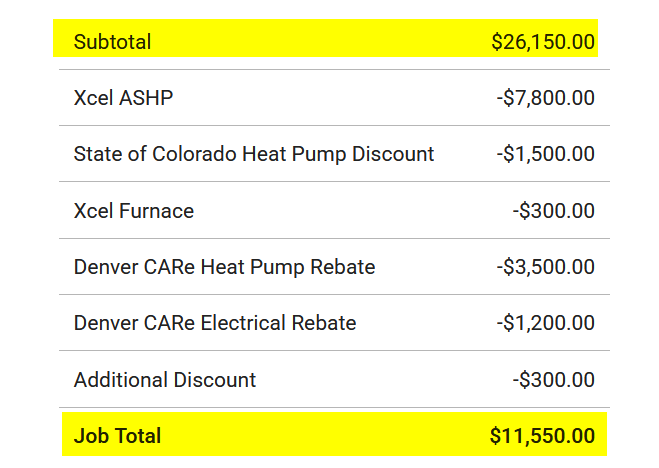
We love incentives & rebates to save our homeowners money where we can. Ask us about what rebates you’re eligible for and how to get them.

✅ Available
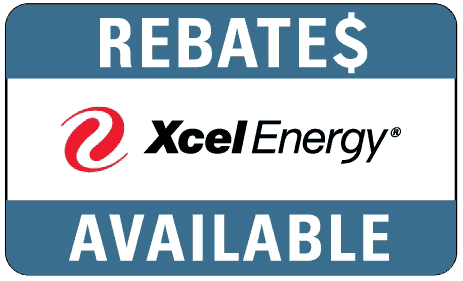
✅ Available
✅ Available
🚫 Late 2025
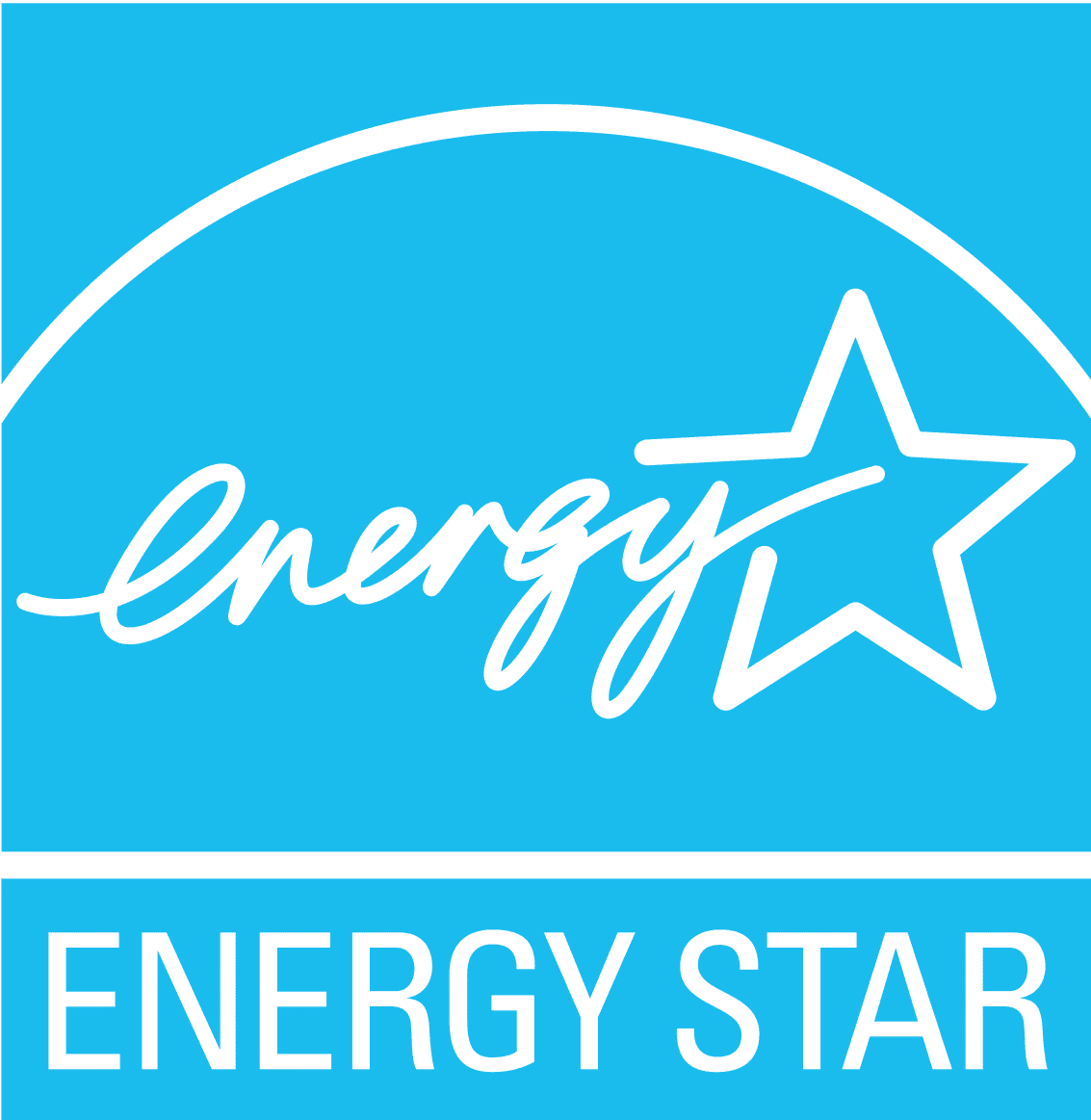
🚫 Mid 2025

✅ Available
We’ve been designing and installing heat pump systems in Colorado for over a decade – long before they became mainstream. Whether you want to go fully electric, prefer a dual fuel system, or need a cold climate solution, we’ve mastered it all. We test and select the best performing units across all major brands to ensure you get the right solution for your home.
Now, everyone else in the HVAC industry is getting started, but with UniColorado, you’re getting a heat pump experience that only comes with thousands and thousands of heat pumps installed.
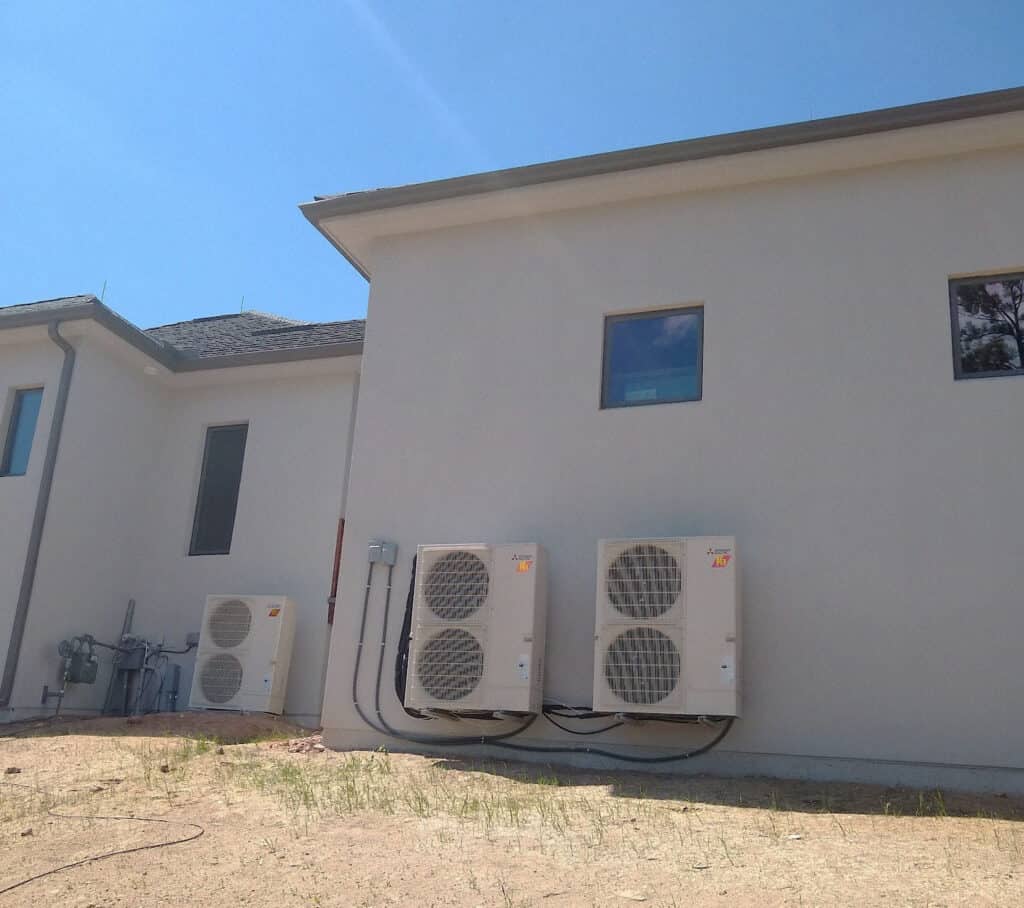
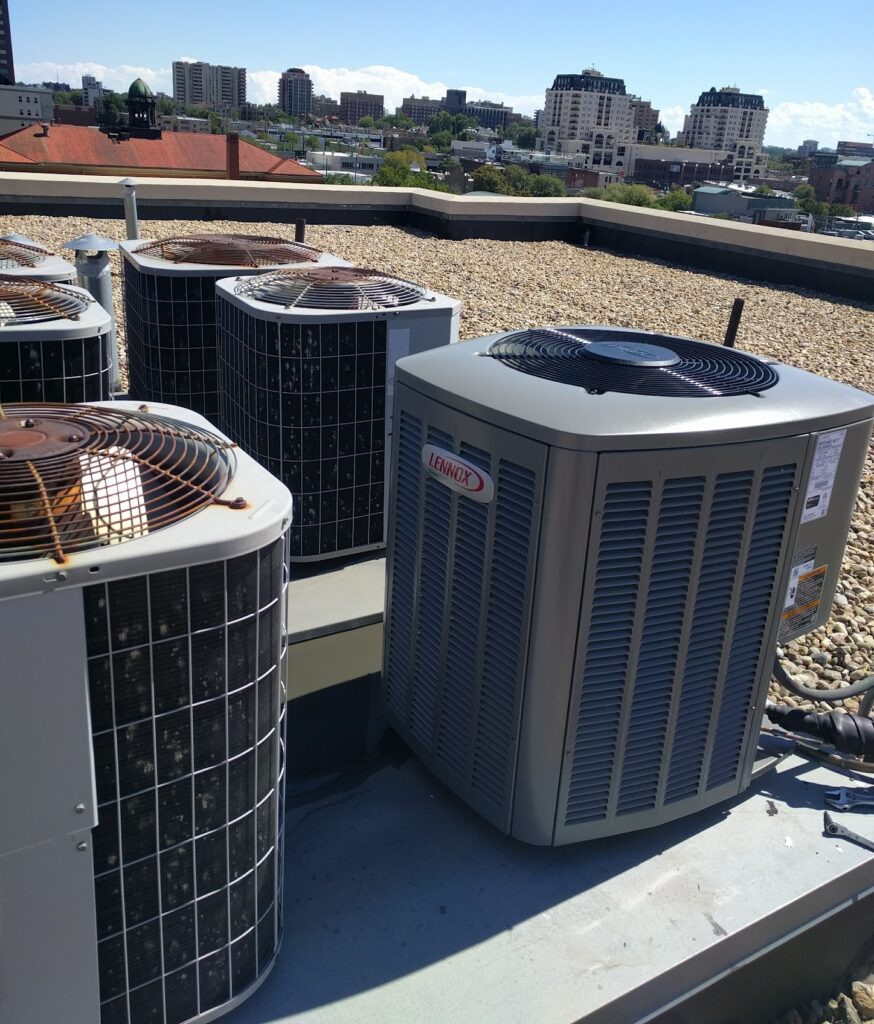
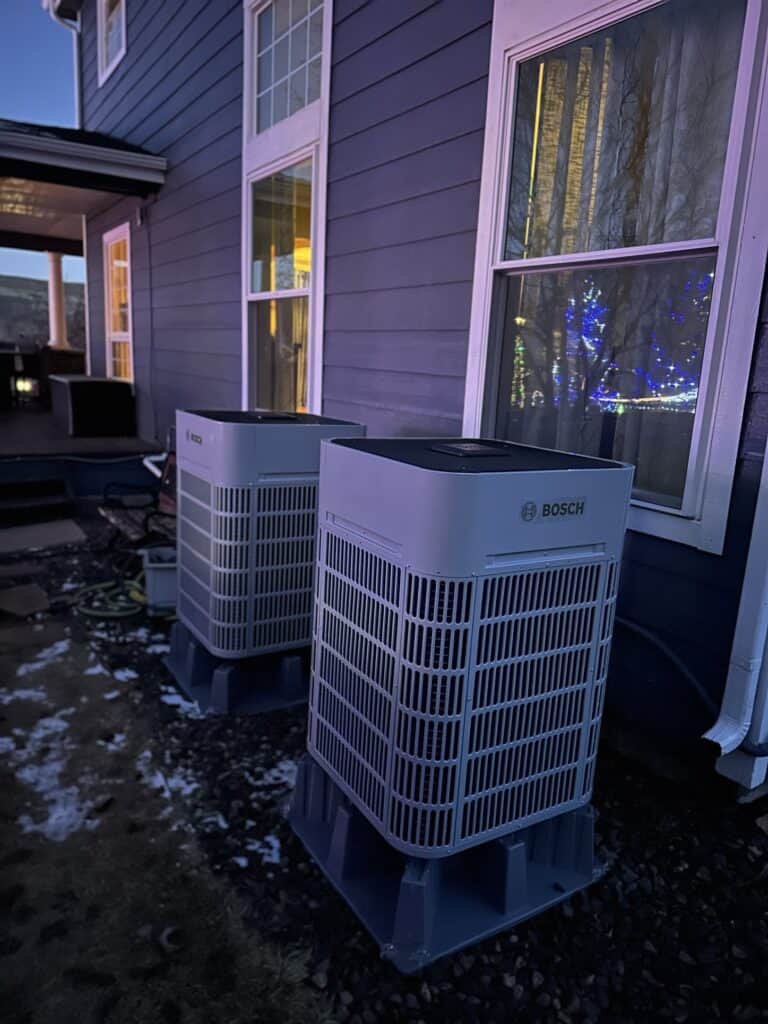
We’re proud to consistently achieve 100% homeowner satisfaction. That’s the UniCo way.
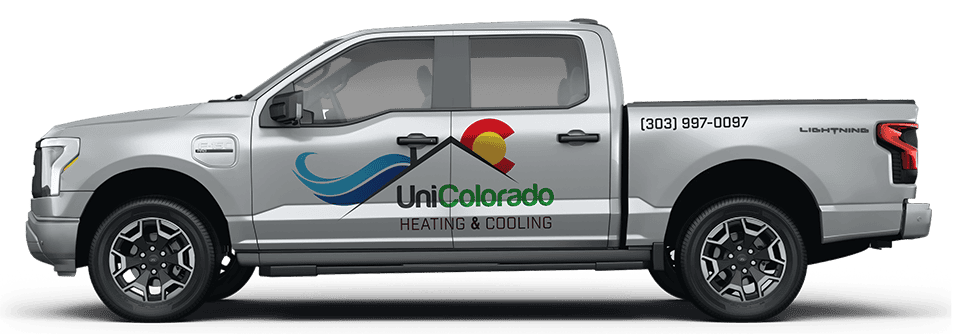
We’ll check your home’s current heating system, electrical panel, and learn about your goals. This helps us recommend the right heat pump size and give you an accurate quote.
We’ll email you the options after the visit. We love to help you understand what you’re getting, so don’t be afraid to ask questions. Once you’re ready to move forward, we’ll schedule your installation.
Our experienced heat pump installers arrive with everything needed for your new system. By the end of the day, your heat pump will be up and running, and we’ll show you how to use it. We stand by our systems and guarantee that you’ll love it.
Older heat pumps weren’t great in cold weather – they typically stopped heating right around ~30°F. But heat pump technology has come a long way. The newer systems, with their inverter-driven compressors, can keep pumping out heat even when it’s -13°F outside.
These newer systems are what we call cold climate heat pumps, and most variable speed units on the market now meet ENERGY STAR’s cold climate standards. They’re a big step up from the old technology when it comes to heating in winter.
Thanks to available rebates and incentives in Colorado, these advanced heat pumps often cost about the same to install as traditional heating systems. More homeowners across the state are making the switch, using heat pumps as their main heating system with backup heat there just for the coldest days.
A dual fuel heat pump combines an electric heat pump with a gas furnace backup. It’s a smart setup that lets you use whichever fuel makes more sense at the time – electricity or natural gas.
In Colorado, where natural gas prices remain relatively low, dual fuel systems often make the most sense. You get the efficiency of a heat pump during mild weather, plus the reliability and lower operating costs of gas heat during the coldest days. It’s really the best of both worlds.
The heat pump handles most of your heating during milder temperatures, when it’s most efficient at pulling heat from the outdoor air. When temperatures drop and gas becomes more cost-effective, the system switches to your furnace. Modern cold climate heat pumps can handle much colder temperatures than older models, meaning you’ll use even less gas than you might expect.
For Colorado homeowners, dual fuel strikes an ideal balance – you get the environmental benefits of a heat pump while keeping gas as a cost-effective backup when you need it most.
A heat pump is a type of heating and cooling system that uses electricity to transfer heat from one location to another. Heat pumps work by using a refrigerant to absorb heat from the air or ground outside and transfer it inside to heat the home. In the summer, the process is reversed, and the heat pump removes heat from the inside of the home and releases it outside, cooling the home.
Heat pumps have several benefits, but there are also some potential drawbacks to consider:
Upfront cost: Heat pumps can be more expensive to purchase and install than other types of heating systems, especially if you need to make modifications to your home to accommodate the heat pump.
Limited heating capacity: Heat pumps are generally less effective at heating homes in very cold climates, and they may struggle to maintain a comfortable temperature during extreme cold spells. Some heat pumps have a backup heating source, such as a gas furnace, to help overcome this limitation.
Installing a heat pump can be a good choice for homeowners who are looking to reduce their energy costs and carbon footprint. Heat pumps are generally more energy efficient than other types of heating systems and can help to lower energy bills over the long term.
Heat pumps also have a number of other benefits, including:
Quiet operation: Many air source heat pumps operate quieter compared to other types of forced-air systems.
Versatility: Heat pumps can be used for both heating and cooling, making them a good all-in-one solution for many homes.
Environmentally friendly: Heat pumps do not burn fossil fuels, which makes them a more environmentally friendly choice compared to other types of heating systems.
In general, you can expect the installation of a airsource heatpump systems to take anywhere from a half-day to a full day or more.
Here are some of the factors that can impact the length of time it takes to install a heat pump system:
Complexity of the installation: If the installation requires extensive modifications to your home, such as adding ductwork or installing new electrical wiring, it will take longer to complete.
Accessibility: If the installation requires access to tight or hard-to-reach spaces, it will take longer to complete.
Experience of the installer: A skilled and experienced installer will generally be able to complete the installation more quickly than a less experienced one.
Roughly, you may need a heat pump with a capacity of around 2 to 3 tons (24,000 to 36,000 BTUs per hour) for a 2000 sq ft house.
Here are some rough estimates for the cost of a heat pump for a 2000 square foot home:
Here are some rough estimates for the cost of a heat pump for a 3000 square foot home:
